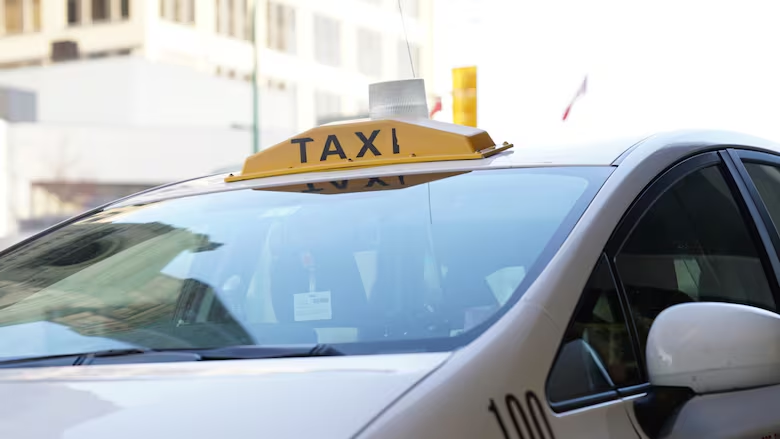Changes needed to make Winnipeg's vehicle-for-hire industry safe for Indigenous women, city meeting hears
Meeting was 1st of 3 organized by the city to look at improving safety in industry

Two dozen people gathered at a Winnipeg community hall on Wednesday afternoon to listen to Indigenous women, girls and gender-diverse people share their concerns about the taxi industry with city policy makers.
"Take our stories seriously. Stop sweeping it under the rug," said attendee Nikki Komaksiutiksak.
The community meeting at Sergeant Tommy Prince Place on Sinclair Street was the first of three city-organized meetings aimed at making vehicles for hire safer for everyone in Winnipeg.
"We should all feel safe enough to call a company [and] use a service that they deliver … without feeling like, are they going to take advantage of me? Are they going to take me somewhere? Is something going to happen to me?" said Komaksiutiksak, who is executive director of the Tunngasugit Inuit Resource Centre in Winnipeg.
For years, Indigenous people have shared stories of assault and harassment in Winnipeg taxis.
Because of stories like those — which span beyond Winnipeg — the National Inquiry into Missing and Murdered Indigenous Women and Girls issued calls to action specifically for safe transportation.
At the resource centre where she works, Komaksiutiksak hears from Inuit who travel from northern communities for health care and say they don't feel safe using taxis or other public transportation — but don't have other options.
"We have 17,000 Inuit that come to Winnipeg annually for medical trips from the north. [That's] 17,000 people accessing transportation," she said.
Earlier this year, the City of Winnipeg voted to introduce a $250 fine for taxi, limo and ride-hail drivers who sexually harass, insult, abuse or threaten a passenger.
But that's not enough for Komaksiutiksak, who wants to see the fine increased and drivers who assault passengers criminally charged.
"Let's slap you on the hand and give you a $200 fine — but this person now has to live with this trauma for the rest of their life? That does not make sense to me," she said.
Sandra DeLaronde, an advocate for missing and murdered Indigenous women, girls and two-spirit people, agrees. The lives of Indigenous women, girls and gender-diverse people are not measured by dollars, she said, but if the fine was high enough, she thinks it could make an impact.
It's not the first time DeLaronde has advocated for safer taxis for Indigenous people. In the spring, she was one of two dozen people who addressed city council and convinced them to keep a code of conduct for drivers, and to implement the fines.

But it's time to move beyond public engagement and into action, she says.
"We need to get past the point of telling our stories over and over again," she said. "There has to be belief that what we are saying is true."
City staff say they're already making changes in the industry, like giving new drivers mandatory cultural training. In the fall, they plan to meet with newcomer women and taxi drivers this fall to get more feedback.
Information from all three city-organized meetings will be compiled in a report in May, and city staff say it will have recommendations for how to make things safer for everyone.
Jessica Paley leads the MMIWG2S calls to action implementation team for the city. Like DeLaronde, she wants to see more action.
She hopes the conversations held on Wednesday can inform the cultural training the city now offers, and lead to it being expanded to all drivers, not just new ones.
"I think there needs to be more space for lived experience, creating empathy and general knowledge of MMIWG2s+ in general — why it's important and how we got here."
With files from Sam Samson


